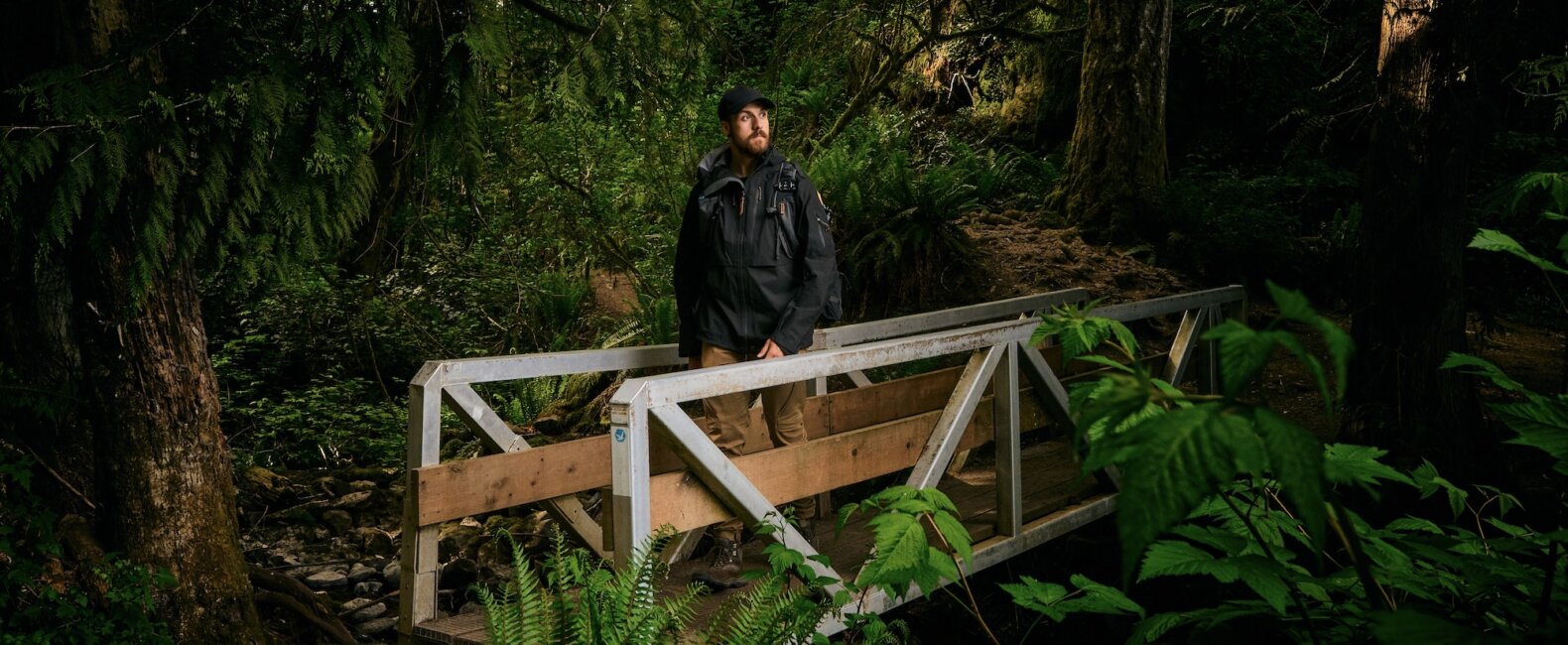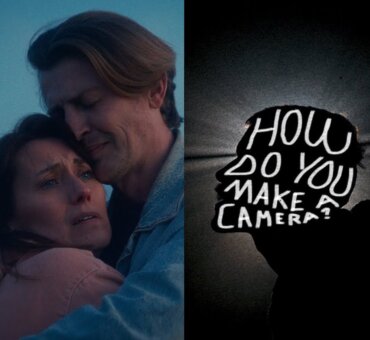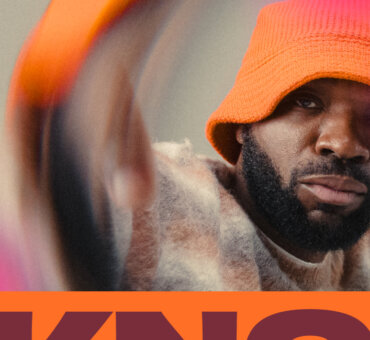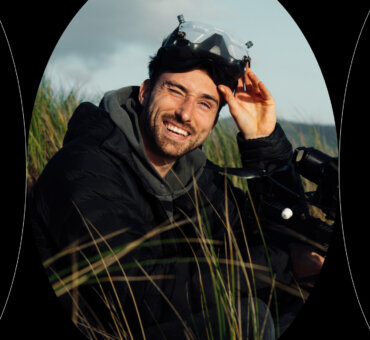When he’s not creating videos on film and photography, YouTube creator/photographer/producer Justin “Dunna” McDonough helps his audience (of 300K+ subscribers) improve their photography, video, and editing skills with his channel Dunna Did It. Hear more from the Vancouver-based creator on what keeps him inspired, his advice to new filmmakers, and why he uses music from Musicbed to elevate his videos.
Musicbed: What sparked your passion for filmmaking/storytelling?
Dunna McDonough: Before I dove into the world of video, I was a full-time music producer and recording engineer. Creativity, conveying emotion, and the problem-solving side of being a creator are nearly my second nature. But I started to find myself limited by the client-based work that music gave me and wanted something more “just for me.” I picked up a camera and found that there were a lot of similarities and crossover between music and video, but there was also a whole new set of problems to think about and a whole new way to look at it. Instead of lyrics, you have a script. Instead of song sections, you have acts and scenes. Instead of microphones, you have lenses and cameras. Instead of chopping up and rearranging audio, now it’s video (and audio, too.) On top of that, video still included audio and music, so it felt like the next step in the evolution of what I could create. Being the absolute nerd that I am, I took a deep dive into how things work, the best gear available, and how to learn from the content that I see, and I translated that into the videos that I make now, both for the education of people who find themselves where I was a handful of years ago and “just for me.”
What keeps you motivated and creatively inspired?
The biggest thing that I find inspires me is seeing other people’s work. There is a constant “How did they do that?” or “Could I do that?” going on in my head that makes me want to create more and more. It also tends to make for wildly inconsistent work because I’m constantly trying new things and updating my methods, but that’s the beauty of primarily making my content for myself and not for a client… I can do pretty much whatever I like. The other side of the inspiration comes from the ever-changing world of social media and people in general. While it’s nice to make primarily content that makes me happy, I’m also always looking at what’s going on in the space, what will connect with people, and new ways to effectively pass the information on to the viewer.
What makes a story visually appealing? What role does music play in storytelling?
A fine line between complication and simplicity creates a visually appealing story. If the visuals are too simple, they can be boring. But if the visuals are too complicated, they can overwhelm the viewer and make them want to turn away. The happy medium there is to find a visual that is aesthetically pleasing and “seems” simple but has just a bit more going on so that the viewer is thinking and analyzing. Music can also be similar, but it has the burden of being a bit more of an “unsung hero” than the visuals. Given the right music choice, balance, and timing, the music can make the visuals more than they would be on their own.
What elements are essential for crafting a compelling story?
A question, a journey, and a conclusion. This can be done in so many ways, with so many other tools, that boiling down anything beyond that to be “essential” feels wrong. Creating a story is more a question of how you choose and combine the elements rather than an essential list of elements you need. For example, you could put together a video with a single shot of a couple’s feet, and the whole story could be carried by the sound of the dialogue of them arguing… no sound effects, no music, no camera movement, but you could get across a compelling story that way. So, in that case, it’s very simple and uses very few elements but could tell the story, leaving out some of the tools you might use to tell a different story. Or the music could tell the whole story in its complexity and mood changes backed up by the visuals on screen. But the important part is the choice of those elements and how they are combined to create an experience for the viewer.
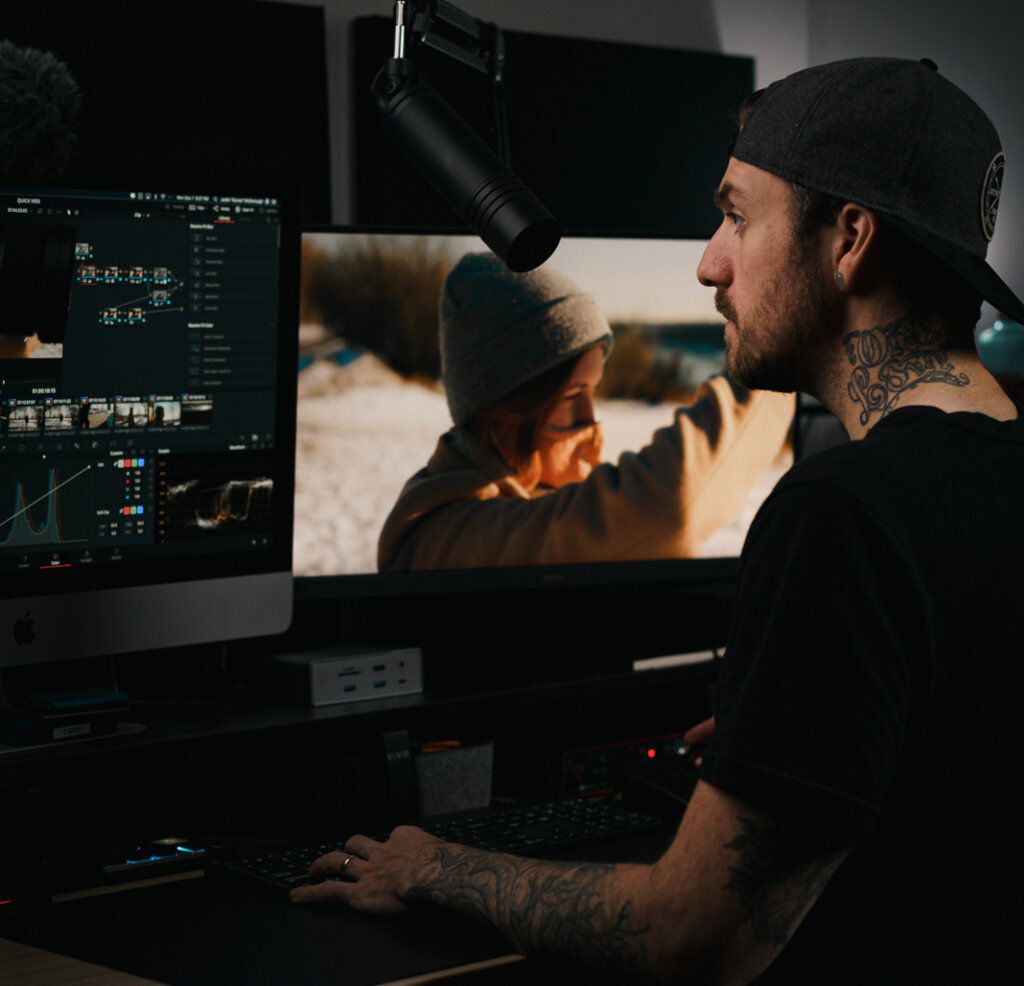
How important is music in your work?
Coming from a music background, music is extremely important to my work. I have been pondering whether I overuse music in my work for my current taste. I lean heavily on music to set the mood, and my next challenge is to investigate every use of music to see whether I’m using it in a way that is the best for the video or if I’m defaulting to what I know. But that’s all part of my constant learning and growing process, and I’m excited to see how the next chapter will look. There is no doubt that music will still be important, but it may just be utilized more subtly.
What advice would you give other filmmakers/creators who are just starting their careers?
Try to balance the ratio between research and practice as much as you can. If you’re anything like me, there’s a tendency to do a ton of research and try to learn everything you possibly can so that when you go to make that first thing, it’s as close to perfect as possible. The issue with that is that your first, or even your thousandth piece, won’t be perfect, and even if it seems like it at the time, later, you’ll look back and see things you could improve because you will have improved. There are things that you can only learn by practicing over and over again and you will never get that from all the book and/or YouTube learning you could do. The type of learning you can do from books, or YouTube is a great way to inspire you to try things, but don’t wait too long to put them into practice.
How do you balance pushing boundaries creatively and delivering what your client or audience wants to see?
I struggle with this specific concept a lot. Partially because I am a social media and YouTube-based creator, those platforms incentivize people pleasing and attempting to follow trends. It doesn’t leave much space for creativity when the platform you post on tells you you did a bad job because fewer people saw it. That being said, I try to keep those things in balance if I can. I love to try new things and explore the medium in which I create my art, but I also want to do it in a way that is pleasing to people and that they want to watch. If I can find the spot in that Venn diagram where the two overlap, that’s really where I want to live.
What is the most challenging aspect of being a filmmaker/creative?
The most challenging thing may actually be balancing audience and self, especially once you’ve committed to making something like this your career. Finding that balance between still finding that child-like joy in what you’re doing while still keeping in mind that you will always have deadlines, teammates, goals, and needs is a tricky one.
What are some of your favorite projects you’ve worked on?
My favorite projects are usually ones where I stretch outside the typical types of videos I make every week. I’ve done a couple of music videos with an artist named Conch that are some of my proudest productions. I also shot a behind-the-scenes short documentary with Sony about a photographer named Matt Scobel, who was giving an online workshop from the top of a mountain. The goal was to blend the documentary style with a bit more of a “YouTubey” vlog style, and it was fun to see how that could turn out. More recently, a fantastic DP, Ryan Wilkes, and I teamed up to do a fun little spec ad about a donut shop that was fun to make. All three of these styles being a bit outside of my regular wheelhouse is what makes me proud of them.
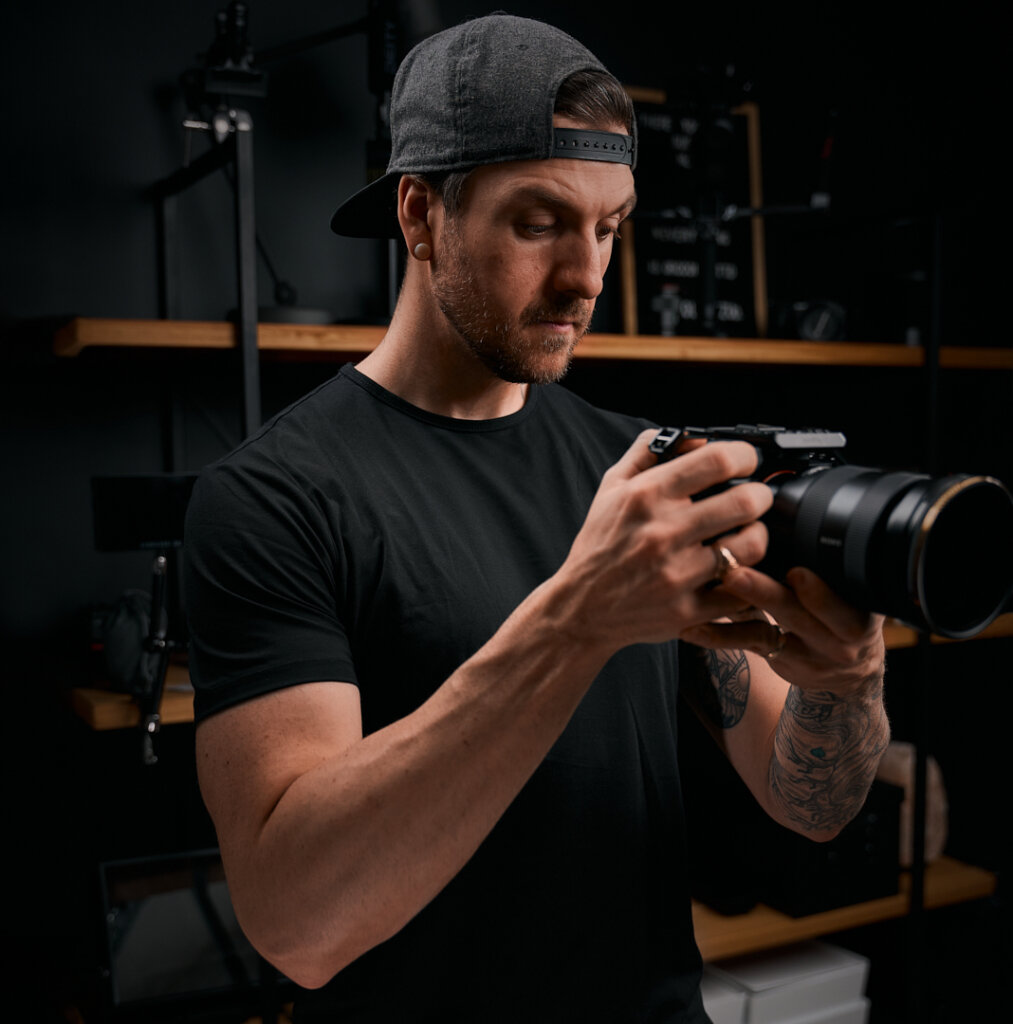
How do you search for music on Musicbed? What are some tips that you’d give other filmmakers to search on Musicbed?
I am all about the filter system when I’m searching for music. As a formally trained musician, I will get into the nitty-gritty, choosing tempos and specific instruments that I want until I can whittle it down to as close to what I hear in my head as possible. But most of the time, it doesn’t need to go that far. Picking a combination of genre and mood often gets great results and inspires something more from the video. Keep it simple with your searches and remember that you can manipulate the music and the video to work better together.
Why do you utilize Musicbed in your work?
Musicbed has some of the best quality music I’ve encountered on any licensing platform. It never feels cheesy or like stock music; it never feels like the artist threw it together quickly for a stock collection. It feels like real music that I would hear out in the real world (because it is). So when I need that authentic sound, Musicbed is a great place to look!
—
Explore an exclusive playlist of songs hand-selected by Dunna for his projects—available to license only on Musicbed.















































































